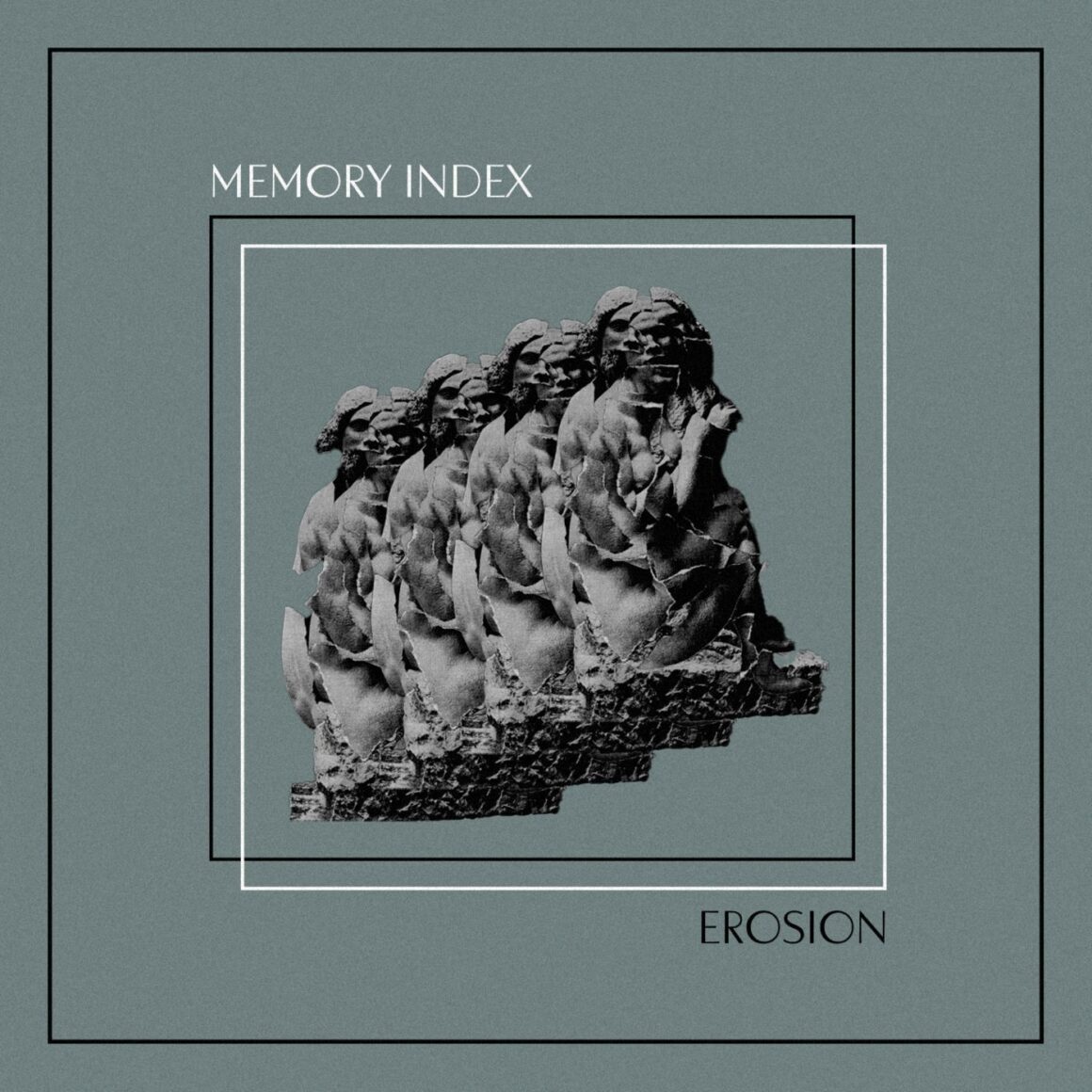In an era defined by disinformation, alienation, and algorithmic despair, EROSION feels less like a record than a cultural diagnosis. With this album, Jackson VanHorn’s current incarnation, Memory Index, dissects the emotional residue of late capitalism with a scalpel sharpened on decades of post-punk lineage. The result is music that doesn’t simply sound political; it embodies the quiet dread of systems in decay.
Much like Joy Division filtered through the geopolitical malaise of the 21st century (in a city like Indianapolis), VanHorn’s compositions operate in stark contrasts of light and dark: minimalist basslines and austere percussion offset by lyrics that expose the moral entropy of modern life. The record unfolds like an ethnography of despair, each track a dispatch from a world where human agency erodes under the weight of spectacle and control.
Hyper Violence, opening the album, could be mistaken for a lost Pink Turns Blue single. Beneath its pulsing rhythm lies a critique of society’s fetish for aggression, reminiscent of A Clockwork Orange’s stylized brutality. It’s danceable nihilism; our collective desensitization set to a mechanical beat. Transpose pivots toward the digital, with its anxious rhythms and spectral vocals evoking A Place To Bury Strangers and early New Order. The song captures what Chomsky might describe as ‘manufactured solitude’: a world hyper-connected yet fundamentally estranged, where communication is constant but meaning collapses.
Tulpa turns ritual into requiem. With its Joy Division-style bass and metronomic disco beat, it conjures the image of a society worshipping memory itself—order and devotion masking existential emptiness. By Wake Up, VanHorn’s lyrical voice becomes prophetic. The song questions whether humanity is capable of renewal, or whether it’s condemned to repeat its errors, an idea as old as Marx’s history and as current as our ecological brinkmanship. The arrangement’s urgency recalls Interpol and Editors, yet the message is older, grimmer, and uncomfortably real.
Headlights and Asylum represent the album’s emotional nadir: surrender and sedation. The former feels like resignation to entropy; the latter, narcotic dissociation dressed in rain-soaked romanticism. “Cocaine white like the asylum” becomes less lyric than metaphor, a system numbing itself against its own collapse.
Ecto, perhaps the record’s most subversive track, invokes They Live. It’s a warning whispered from the margins: power thrives through invisibility. Behind every smiling mask is a mechanism of consumption. VanHorn’s critique is implicit but unmistakable: our complicity is the currency of our subjugation. Sorrows channels pure philosophical exhaustion. The song’s narrator has seen too much, thought too deeply, and decided that indifference is the last refuge of the conscious. It is, in its own way, the album’s thesis: a portrait of moral fatigue in a civilization running on fumes. The instrumental Erosion closes the album with ambient dissonance.
Listen to EROSION below and order the album here.
VanHorn’s achievement is not in nostalgia, but in synthesis. EROSION bridges the emotional austerity of early post-punk with the intellectual rigor of social commentary. It’s an album for those who sense that beneath the noise and neon, something human is quietly disappearing…and who still, against the odds, want to understand why.
Follow Memory Index:
















 Or via:
Or via: